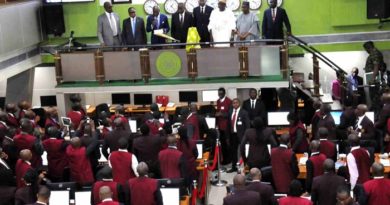Nigeria: PwC predicts slow economy growth, rise in unemployment in 2019
Professional services firm, PricewaterhouseCoopers (PwC) has predicted a possible rise in Nigeria unemployment rate and slow economic growth in 2019.
The predictions are contained in a report titled ‘Nigeria Economic Outlook Top 10 themes for 2019’ that examines Nigeria’s economic prospects in the year.
PwC predicted that Nigeria’s economic recovery hinges on a stable political environment following the elections.
Nigeria’s economy has been rebounding after it fell into recession in 2015. The National Bureau of Statistics (NBS) announced that the economy grew by 2.38 per cent in the fourth quarter of 2018 while there was an annual GDP growth rate of 1.93 per cent in the year.
The auditing firm predicted further growth for the economy after the elections if “uncertain post-election outcomes do not accelerate political tensions.”
Although PwC notes that the uncertainty usually associated with the pre and post-election cycles in the country will dampen the investment climate in the short term.
“Real GDP growth expected to grow slightly to 2.5%y/y on moderate improvements in net exports and domestic demand,” according to the report.
The report predicted a rise in the unemployment rate in the country. NBS released the belated report of the unemployment rate in the third quarter of 2018. The grim outlook was represented by the jump from 18.8 per cent unemployment rate in Q3 2017 to 23.1 per cent in Q3 2018.
PwC predicts that the unemployment rate will “continue to trend upward even as the youth population expands rapidly with more than half of the population under the age of 30.”
PwC estimates that reelection for Buhari will see the oil production fall to 1.7mbpd from the 1.91mbpd recorded in Q4 of 2018 by NBS.
The drop in the average daily oil production is due to the OPEC cut on Nigeria’s production quota. The oil control body instructed its members to reduce oil production beginning in January 2019.
Although a win for Buhari in the 2019 election means there will be policy continuity with all the reform policies intact, PwC predicts the economy will continue its recovery albeit at a slow pace.
The financial advisory firm predicts stability in the average daily oil production if a new government emerges. It predicts a formulation of new policies or potential re-adjustment to existing policy with a focus on deepening the recovery of the economy.
In a possible scenario of heightened political risk, PwC predicts that the accelerated political tension in the wake of the 2019 general elections could hamper policy continuity and the economy.
It noted that such a scenario will “bring about a significant decline in revenues resulting in no growth (zero percent) in 2019.”




